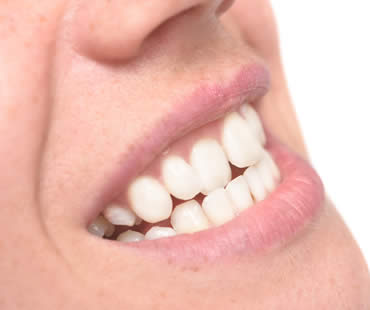
by Dr. Adkins | Jan 22, 2021 | Blog, Dental Information, Dental Topics 2
Whether you call it pop, soda, soft drink, or something else, these terms all refer to a sugary, carbonated drink popular all over the country. It is estimated that Americans consume over 13 billion gallons of soft drinks each year. These beverages can cause serious health problems, including negative effects on your oral health.
Soft drinks are one of the most significant reasons for tooth decay, and it impacts all age groups. From babies drinking it out of bottles to teenagers drinking it all day long to older adults sipping it in retirement homes, it is deteriorating tooth enamel and eroding gums of everyone who consumes it.
Why are soft drinks harmful?
The high sugar content in the drinks is the root cause of trouble, and the high acid content adds to the threat. The sugar combines with bacteria in your mouth to create an acid, which adds to the acid from the drink itself. Then this mixture attacks your teeth. Each time you take a drink of the carbonated beverage, an acid attack begins in your mouth. During this time, your tooth enamel is weakened and cavities are just waiting to form. You may think that the risk goes away by drinking sugar-free soft drinks. Although these are less harmful, they are still acidic and can lead to decay.
How can I avoid harming my teeth?
The ideal way to rule out risks from soft drinks is to cut them out of your diet completely. If you think you just can’t live without them, here are some suggestions:
- Substitute other drinks. Try drinks with less sugar, like 100% fruit juice and milk.
- Set a good example. Drink alternatives yourself and encourage your kids to do the same.
- Sip with straws. This helps keep the sugar from direct contact with your teeth.
- Rinse with water. After drinking a soda, rinse your mouth with water to reduce the amount of sugar and acid hanging onto your teeth and gums.
- Use fluoride toothpaste and mouth rinse. Using fluoride in your daily dental routine helps to reduce decay and strengthen enamel. Also ask your dentist about the possible need for professional fluoride treatments.
Schedule your appointment at our McDonough dental office

by Dr. Adkins | Jan 15, 2021 | Blog, Dental Information, Dental Topics 2
Tooth pain can be one of the most uncomfortable types of pain there is. It can make your whole jaw and head ache, interfere with eating, and cause your teeth to be more sensitive. One common reason for a toothache is your wisdom teeth, which are the molars in the very back of your mouth that develop last. Sometimes they don’t even erupt, but they can still be there under your gums causing trouble. If you experience pain related to wisdom teeth, here are some suggestions.
Make an appointment to see your dentist as soon as possible. This way you can find out for sure if your wisdom teeth are to blame for your pain, and decide the best treatment plan for your situation. A dentist examination, which may include x-rays, is the best way to determine exactly what’s going on with your teeth. You may not even be able to see your wisdom teeth, but they might be growing improperly under your gums. Often, wisdom teeth need to be extracted to avoid continued pain or worsening condition. Luckily, wisdom teeth extraction is a common procedure that your dentist or oral surgeon is very familiar with, and can provide you with great treatment that will end up relieving your pain.
While waiting for your dental appointment, try applying an over-the-counter numbing gel such as Oragel. This may help relieve your pain at least for a short time. Also, taking non-prescription pain medicines should help. Acetaminophen and ibuprofen are both good choices to try, especially to subdue the pain when you want to sleep.
Remember that prevention is often the best way to avoid dental pain. Brush your teeth at least twice a day, and floss every day. See your dentist regularly for checkups, because problems with wisdom teeth can sometimes be spotted before you ever begin to feel any pain associated with them. This allows you to deal with the problem before you have to endure a toothache.
If you live in the McDonough area contact us today

by Dr. Adkins | Jan 8, 2021 | Blog, Dental Information, Dental Topics 2
Does your mouth feel like it’s full of cotton? Or does it remind you of the Sahara Desert? Having an overly dry mouth can result from a variety of dental and medical issues. For example, one common culprit of dry mouth symptoms is related to medications. The best long-term solution is to consult your dentist or physician to determine the root cause of your dry mouth, and to get treatment to solve the problem. Sometimes all that is needed is to change to a different medication, and your dry mouth will disappear. However, here are some things you can try to temporarily relieve your dry mouth until you are able to determine what is causing it.
- Sip water often.
- Limit caffeine consumption, which can dry out your mouth even more.
- Chew sugarless gum or suck on sugarless hard candy.
- Use an over-the-counter saliva substitute, such as Biotene.
- Do not use tobacco products of any kind.
- Do not use mouthwashes containing alcohol, because it can be drying.
- Avoid over-the-counter antihistamines and decongestants, which can worsen your dryness symptoms.
- Add moisture to the air using a humidifier.
- Try to breathe through your nose instead of your mouth.
If you do experience the symptoms of dry mouth, it’s especially important to protect your oral health. Make sure you brush your teeth with toothpaste containing fluoride, and ask your dentist if prescription fluoride toothpaste would benefit you. Use a fluoride mouth rinse before bed to add an extra layer of protection for your teeth. Limit the amount of sugary foods or items high in acids, as both of these types of foods increase your risk of tooth decay. Following these tips for relieving dry mouth symptoms can make it more comfortable for you to eat, swallow, and talk.
Schedule your appointment at our McDonough dental office

by Dr. Adkins | Sep 25, 2020 | Blog, Dental Information, Dental Topics 2
Pregnancy is an exciting time in your life that brings about many changes to your body. Your oral health is affected as well. There are specific things to keep in mind during pregnancy related to your teeth, gums, and caring for them. Let’s talk about the things you should be thinking about for your mouth while expecting a baby.
Medications:
Tell your dentist about any prescription or over-the-counter medicines you’re taking, so that it’ll be easier to prescribe any drugs needed for you during dental treatment. Your dentist may also want to consult your doctor to discuss safe painkiller or antibiotic options for you during pregnancy.
X-Rays:
If you have a dental emergency or a problem that needs diagnosis, an X-ray may be required. Radiation exposure from dental X-rays is very low, but your dentist will cover you with a leaded apron to protect your abdomen. A leaded thyroid collar will also be used to protect your thyroid from radiation.
Gingivitis:
It’s not uncommon for some women to develop pregnancy gingivitis, which is a gum problem that occurs during the hormonal fluctuations of pregnancy. This condition is an inflammation of the gums that causes tenderness, swelling, and usually some bleeding during dental hygiene tasks. Your dentist may suggest more frequent cleanings during pregnancy to prevent gingivitis, because left untreated it can advance to more serious gum disease.
Pregnancy tumors:
Some pregnant women experience overgrowths of tissue called pregnancy tumors, which appear on the gums mostly during the second trimester. They are not cancerous and are usually located between your teeth. Dentists believe they are related to having too much plaque. Pregnancy tumors bleed easily and appear red and raw. Usually they go away after the baby’s birth, but some women prefer to have them removed before then. Discuss options with your dentist to see what’s best for you.
We look forward to seeing you in our McDonough dental office

by Dr. Adkins | Jun 19, 2020 | Blog, Dental Information, Dental Topics 2
Obesity, defined as an excess proportion of body fat, has reached epidemic levels in the United States. This condition presents health risks to many areas of your body, and takes a toll on just about every aspect of your life. What does obesity have to do with oral health? Recent studies have linked the development of obesity with oral bacteria.
By testing the saliva of overweight people compared to individuals within a healthy weight range, researchers have discovered an oral bacteria present in 98 percent of the obese subjects. Experts believe this bacteria is an indicator of developing an overweight condition. Also, they suspect that the bacteria may participate in the body functions that lead to obesity.
Preventing and controlling obesity usually begins with analyzing and changing your diet. A high glycemic diet, which generally means a diet high in sugars, contributes to weight gain. It is also connected with your dental health, because sugars in your mouth are converted into plaque. If plaque accumulates on your teeth and gums, the risk increases for tooth decay and gum disease.
While it will likely benefit your waistline to reduce the amount of sugar consumed, doing so will reduce your risks for oral disease. Likewise, regular dental checkups, proper oral hygiene including brushing and flossing twice daily, and smart diet modifications will also lower your oral health risks. As experts continue to investigate the connection between your mouth and your overall health, following recommendations for caring for your mouth will likely decrease oral bacteria and possibly limit your risks of other health concerns such as obesity.
We treat patients from McDonough and the surrounding area

by Dr. Adkins | May 29, 2020 | Blog, Dental Information, Dental Topics 2
Life can be full of frustrations, demands, deadlines, and inconveniences. For lots of people, stress is a way of life. The problem is that when you’re constantly stressed out, your health can pay the price. There are many health conditions that are caused or worsen due to high stress levels, but did you know that your mouth may be affected in the form of teeth grinding?
What is teeth grinding?
The condition of grinding or gnashing your teeth together is called bruxism, and often includes clenching your jaw. It commonly happens while sleeping, so that you may not even realize you’re doing it. Sometimes a sleeping partner hears it, or your dentist may recognize the signs of unusual wear on your teeth.
What does my stress level have to do with it?
Teeth grinding has been linked to stress and anxiety. Studies have shown that people who are stressed from daily life and don’t have adequate coping methods are more likely to grind their teeth. Experts say that both adults and children facing stress sometimes cope by grinding their teeth.
How does teeth grinding affect me?
Grinding your teeth has more negative effects than you might think. It often causes headaches, earaches, and sleep problems. It can cause chipped, loose, cracked, or sensitive teeth. Tooth enamel can suffer excessive wear, and gum tissue may be damaged. Teeth grinding also often causes a painful jaw disorder of the temporomadibular joint, commonly called TMJ.
What can I do about it?
Your dentist may recommend wearing an over-the-counter or custom mouthguard at night, to protect your teeth from further damage. Medications usually are not helpful, although a muscle relaxant before bed may help prevent jaw clenching. The ideal treatment is to try to reduce or eliminate stress that may be contributing to your teeth grinding. Relaxation therapy, stress management, corrective exercises, and counseling are some of the options that dentists suggest to help you remedy the problem.
If you need a dentist in McDonough contact us today








 (470) 665-5292
(470) 665-5292  E-Mail Us
E-Mail Us 
